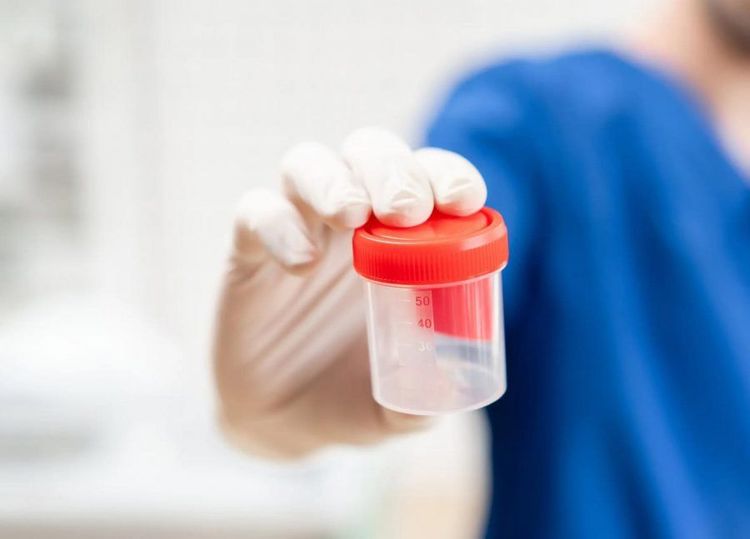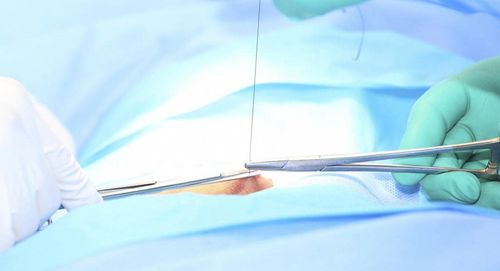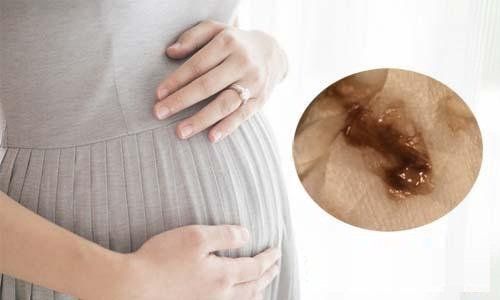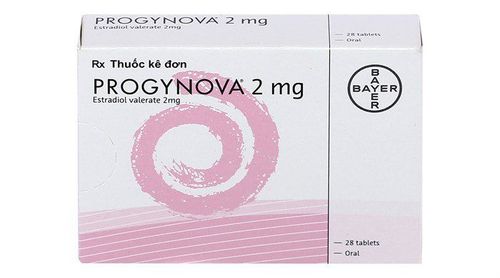The duration of intercourse significantly affects the psychology, emotions, relationships, and reproductive health of couples. However, this is just one of many factors influencing the success of conception. So, how many minutes should intercourse last to get pregnant? What factors determine the success of conception and implantation? This article will answer these questions for readers.
1. How many minutes should intercourse last to get pregnant?
Having unprotected sex can lead to conception and pregnancy. However, natural conception does not always occur quickly. In fact, couples under 35 years old typically need several months to a year.
The duration of intercourse significantly affects the psychology, emotions, relationships, and reproductive health of couples. However, this is just one of many factors influencing the success of conception. Therefore, there is no specific number to answer the question "how many minutes should intercourse last to get pregnant?" In particular, whether intercourse lasts 10 seconds or 30 seconds is not the main determining factor; it depends on many other related factors.
Studies show that it takes an average of 15 to 90 minutes for sperm to reach the egg after traveling from the cervix to the fallopian tubes. This time is not fixed and depends largely on the activity and condition of each sperm and the vaginal environment in women. If ovulation is occurring and the egg is already in the tube, fertilization can happen as quickly as 15 minutes after sperm is released into the woman's vagina.
Sperm can live up to 5 days in the female reproductive system. Therefore, fertilization can occur during this time. This explains why the day of conception and the day of intercourse are not the same.
When the egg and sperm form a zygote, it moves to the uterus for implantation. This implantation process occurs in the uterine lining. However, biologically, pregnancy is confirmed when the embryo successfully implants into the endometrium. The implantation process takes about 5-10 days after fertilization. Therefore, the entire process of conception and implantation occurs within 5-15 days after intercourse.
2. Factors Determining Successful Conception
As mentioned above, the duration of intercourse is not the only factor determining success. Conception is influenced by many factors, such as:
2.1. Quantity and Quality of Sperm
For the egg and sperm to meet, the sperm must swim through the vagina, cervix, uterus, and meet the egg in the fallopian tube. To successfully navigate this journey, sperm must overcome many obstacles, with millions of sperm being destroyed along the way.
Fertilization depends greatly on the activity and condition of the sperm. The average tail beat frequency of sperm is 1000 beats/second. Healthier sperm will swim faster, shortening the time to reach the egg compared to weaker sperm that cannot travel far. In men, there are two types of sperm: X and Y. Studies have shown that Y sperm swim faster but have a shorter lifespan compared to X sperm.
The quantity of sperm also plays an important role in successful conception. Only when the quantity is large enough can sperm have a chance to reach the egg after losing a significant number during the journey.
Additionally, the time it takes for sperm to reach the egg depends on the vaginal environment of the woman. If the environment is favorable, it can create good conditions for the egg and sperm to meet. Scientific studies also show that after being released into the vaginal environment, most sperm will work at full capacity to swim as quickly as possible to reach the egg in the shortest time.

2.2. Menstrual Cycle
One of the factors that create a successful conception is the timing of ovulation. Many studies and scientific evidence suggest that this timing falls around the woman's ovulation period. Sperm can live in the female body for about 5 days, but the egg only survives for about 12-24 hours after ovulation. Therefore, accurately determining the time of ovulation and having intercourse during this period increases the chances of conception.
Tracking the menstrual cycle is a simple and easy method to determine the fertile period in women. If the menstrual cycle is regular, around 28 days, ovulation occurs 14 days after the onset of menstruation. This timing can vary with longer menstrual cycles. Additionally, tracking the menstrual cycle helps determine if the ovaries are functioning well.
There are many available apps on smartphones to track the menstrual cycle and determine ovulation. However, women can recognize this timing based on somebody symptoms due to hormonal changes during the cycle. Some symptoms include:
- Breast tenderness
- Abdominal discomfort
- Increased vaginal discharge
- Elevated body temperature
- Higher libido during this period
2.3. Healthy Lifestyle
Currently, an unhealthy lifestyle has contributed to the increasing infertility rates among couples. Eliminating bad habits and adopting a healthy lifestyle can increase the chances of conception.
Some habits affecting reproductive quality include:
- Abuse of alcohol, beer, tobacco, and stimulants: These common habits significantly impact health, especially sperm quality. Many studies have shown that alcohol and tobacco cause mutations in the number and arrangement of chromosomes, reducing sperm quality and affecting the outcome of fertilization and healthy pregnancy.
- Prolonged stress, lack of sleep, and frequent late nights also affect reproductive health. After 11 PM is the optimal time for the body to produce testosterone, an important male sex hormone, especially during deep sleep. Therefore, continuous late nights over a long period affect sperm production, reducing the quantity and quality of semen.
- Poor nutrition: Nutrition plays a crucial role in health. A balanced diet with adequate nutrients not only promotes overall health but also enhances reproductive health. Essential foods like asparagus, oysters, chives, beef, bananas, and watermelon,... should be included in the diet for positive health effects.
- Lack of exercise: Physical activities and appropriate exercises are essential in today's life. Increasing exercise routines not only promotes a strong, healthy body but also enhances endurance and reproductive health for both men and women.

3. How to Shorten the Time for Sperm to Reach the Egg
The time for sperm to reach the egg cannot be shortened beyond the estimated average time. However, this time can be minimized, and fertilization efficiency can be improved through several methods:
- Create a favorable vaginal environment for sperm survival by keeping the vagina clean, healthy, and free from gynecological diseases.
- Have sexual intercourse close to the ovulation day.
- Men should take care of their health to ensure that X and Y sperm are healthy, survive, and move quickly and efficiently.
- Choose favorable sexual positions to allow sperm to be deposited as deeply as possible into the woman's vagina.
After fertilization in the fallopian tube, the zygote gradually moves to the uterus for implantation. When the embryo embeds into the endometrium, the woman's hormones will change to prepare for pregnancy. Therefore, the woman's body will show early pregnancy signs.
When experiencing suspected pregnancy symptoms, you can use a home pregnancy test and schedule regular prenatal check-ups with an obstetrician to monitor the baby's development throughout the pregnancy.
The first trimester is the most sensitive period of pregnancy. To ensure the health of both mother and baby, parents should note:
- Understand early pregnancy signs, morning sickness, and bleeding during pregnancy.
- Timely, accurate, and complete first prenatal check-up, avoiding too early or too late check-ups.
- Screen for fetal abnormalities at 12 weeks to detect dangerous fetal abnormalities for early intervention.
- Differentiate between normal vaginal bleeding and pathological vaginal bleeding to timely preserve the pregnancy.
- Screen for thyroid disease in the first trimester to avoid dangerous risks before and during childbirth.
To arrange an appointment, please call HOTLINE or make your reservation directly HERE. You may also download the MyVinmec app to schedule appointments faster and manage your reservations more conveniently.













